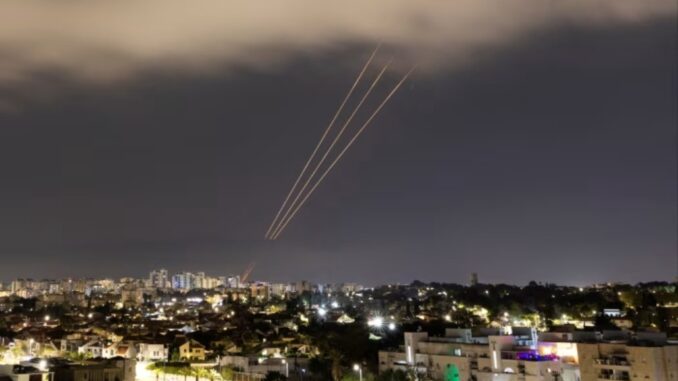
By Imran Kamyana
Iran’s first-ever direct attack on Israel is symbolic in nature, aimed at warning Israel against overstepping and restoring the credibility of Iranian state in front of its people, armed forces and proxy groups.
It should be noted that the Israeli aggression and brutality on Gaza has ideologically hollowed out the states and rulers with religious narrative (Iran, Erdogan, Pakistan, etc.) and the people in these countries are rightly questioning what these champions of Islam are doing to stop the ongoing genocide of Muslims in Gaza. This is a bigger factor than inflation and economic crisis in Erdogan’s defeat in the recent local elections in Turkey.
In this regard, the Iranian state is also under severe internal pressure. In addition, the Israeli acts of assassinating Iranian commanders and nuclear scientists inside and outside Iran has been going on for many years now, and in this regard Israel’s attack on the Iranian embassy in Damascus has proved to be the last straw on the camel’s back.
But there seems to be an element of bilateral understanding, at least so far, in the Iranian offensive to contain the conflict and prevent it from escalating into an open war (with US mediation playing a particularly important role). This limited attack will also benefit Netanyahu internally and give him more opportunity to present himself as the Messiah and savior to the Israeli public.
However, this situation needs to be seen in the context of growing contradictions between regional and global imperialist powers, not only in the Middle East but worldwide, which could explode uncontrollably despite all their “understanding” and behind-the-scenes diplomacy. This could lead to massive bloodshed in the form of new wars as well as an unprecedented crisis in the already fragile global economy. Even the imperialist policy makers are aware and afraid of this fact. This is the reason why the Americans were trembling and racing to stop the Iranian attack and tried to solve the issue by involving powers from China to the Gulf states for arbitration.
The post-Iranian attack situation will take some time to get clear, the key factor being whether Israel retaliates. And if it does, what the nature of retaliation would be. In case of Israeli retaliation, Iran will have to respond more aggressively than before and the situation will only worsen. It seems that Natenyahu desires this scenario in order to cling to the power at any cost, divert public attention from his failure in crushing Hamas in spite of an unprecedented genocide of Palestinians in Gaza, and directly involve the Americans into the conflict. But the policy makers of imperialism in Washington and elsewhere, at least the serious strategists among them, are behaving in a very cautious manner as an open conflict can quicky get out of control and will have devastating repercussions in the region and globally. Hence, it seems more likely that the tense situation will be eased by channeling into institutionalized condemnations and deceptive rhetoric, and efforts will be made to suppress the Iran-Israel conflict, at least temporarily.
But given the complexity of the emerging scenario, the respective imperialist powers themselves seem incapable of creating a far-reaching perspective. For the working people of the world, this obsolete capitalist system entails exploitation and destruction that only increases with time.








